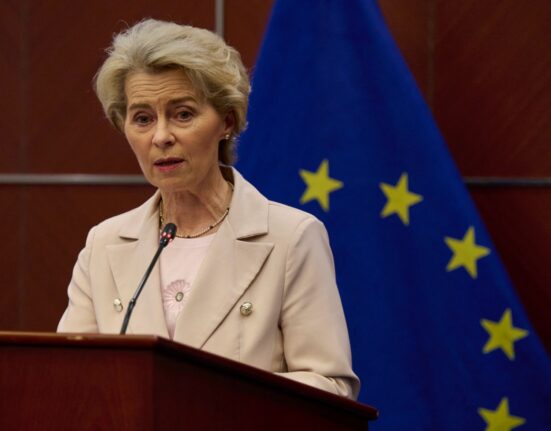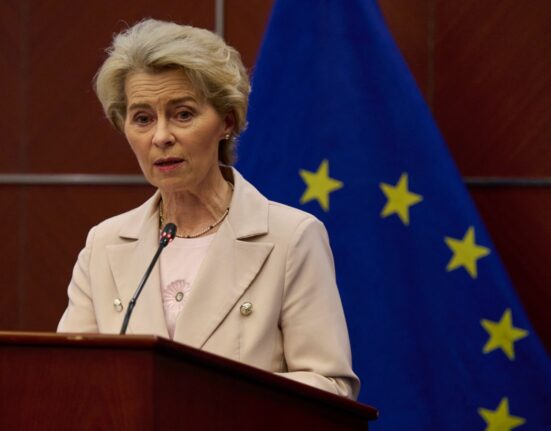—
Concerns in the Western Balkans
In the midst of Europe’s focus on Ukraine, a new storm brews in the Western Balkans. Belgrade, Kosovo, and Sarajevo find themselves at a crossroads as fears mount over Russian President Vladimir Putin’s potential meddling. Leaders in the region, alongside British authorities, are sounding alarms about Putin turning the former Yugoslavia’s fault lines to his advantage.
The UK government considers the Western Balkans as “the other hotspot,” emphasizing the urgency of all six states joining the EU to counter Russian influence. British Foreign Secretary David Lammy recently visited the region and warned against underestimating Putin’s interests in destabilizing these countries through cyber warfare and hybrid tactics.
The Path to EU Membership
Amidst domestic challenges and regional tensions, all six Western Balkan states strive for EU membership. However, achieving this goal is not just about meeting alignment tasks but also navigating complex geopolitics. Bosnia-Herzegovina faces internal crisis due to separatist policies. Serbia and Kosovo remain entangled in disputes over minority rights and territory issues.
Experts fear that Russia could exploit these ethnic and religious divisions to sow further unrest across the Balkans, serving its own agenda while posing a threat to EU stability. An anonymous UK official emphasized that time is running out for these countries to solidify their path towards EU integration before facing increased pressure from ongoing conflicts such as Ukraine’s accession.
Serbia’s Complex Dilemma
Despite democratic setbacks and ties with Russia, Serbia has expressed a desire to join the EU since 2009. However, differing visions within Serbian society complicate this journey. There is a struggle between embracing democracy or succumbing to corruption and authoritarianism – elements contested within Serbia.
President Aleksandar Vučić’s leadership faces significant challenges amid widespread protests against government corruption and controversial development projects like Jared Kushner’s real estate venture on symbolic war ruins. The discontent on Serbian streets reflects deeper societal fissures that challenge Vučić’s pro-EU stance while maintaining close ties with Moscow.
Tensions in Kosovo
Kosovo remains embroiled in conflict with neighboring Serbia despite international efforts for normalization post-independence. Recent incidents like attacks on monasteries fuel mutual accusations of aggression between Kosovo and Serbia. Political leaders like Prime Minister Albin Kurti warn of looming conflicts fueled by external powers like Russia aligning with Belgrade.
NATO-led troops play a crucial role in preserving peace within Kosovo; concerns over Russian interference heighten tensions among local politicians and international observers alike. President Vjosa Osmani stresses the need for collective deterrence against autocratic influences seeking regional destabilization following global geopolitical shifts triggered by events such as those unfolding in Ukraine.
—
The intricate web of political dynamics intertwined with historical grievances sets an ominous backdrop for potential upheaval in this fragile region.








Leave feedback about this